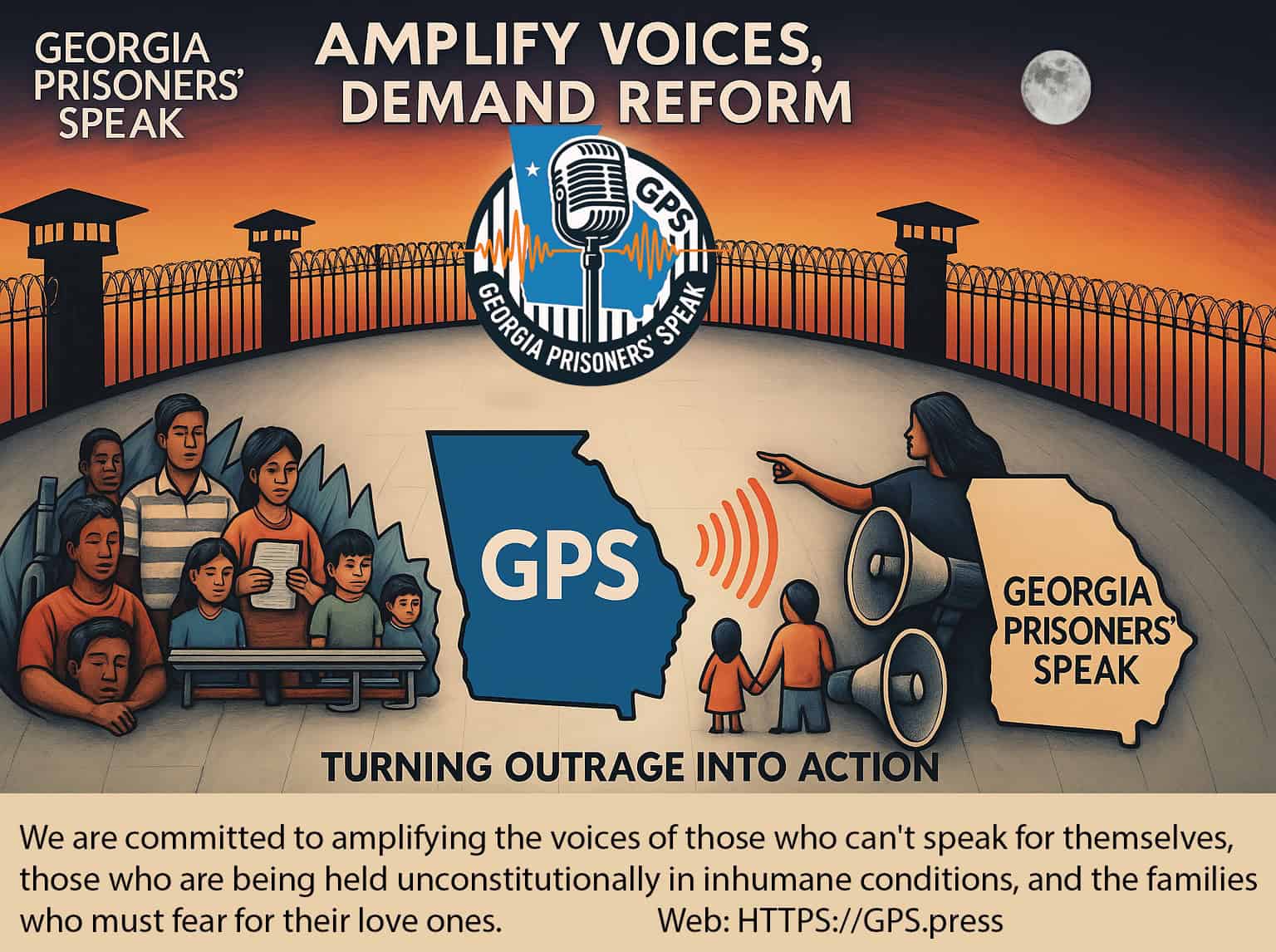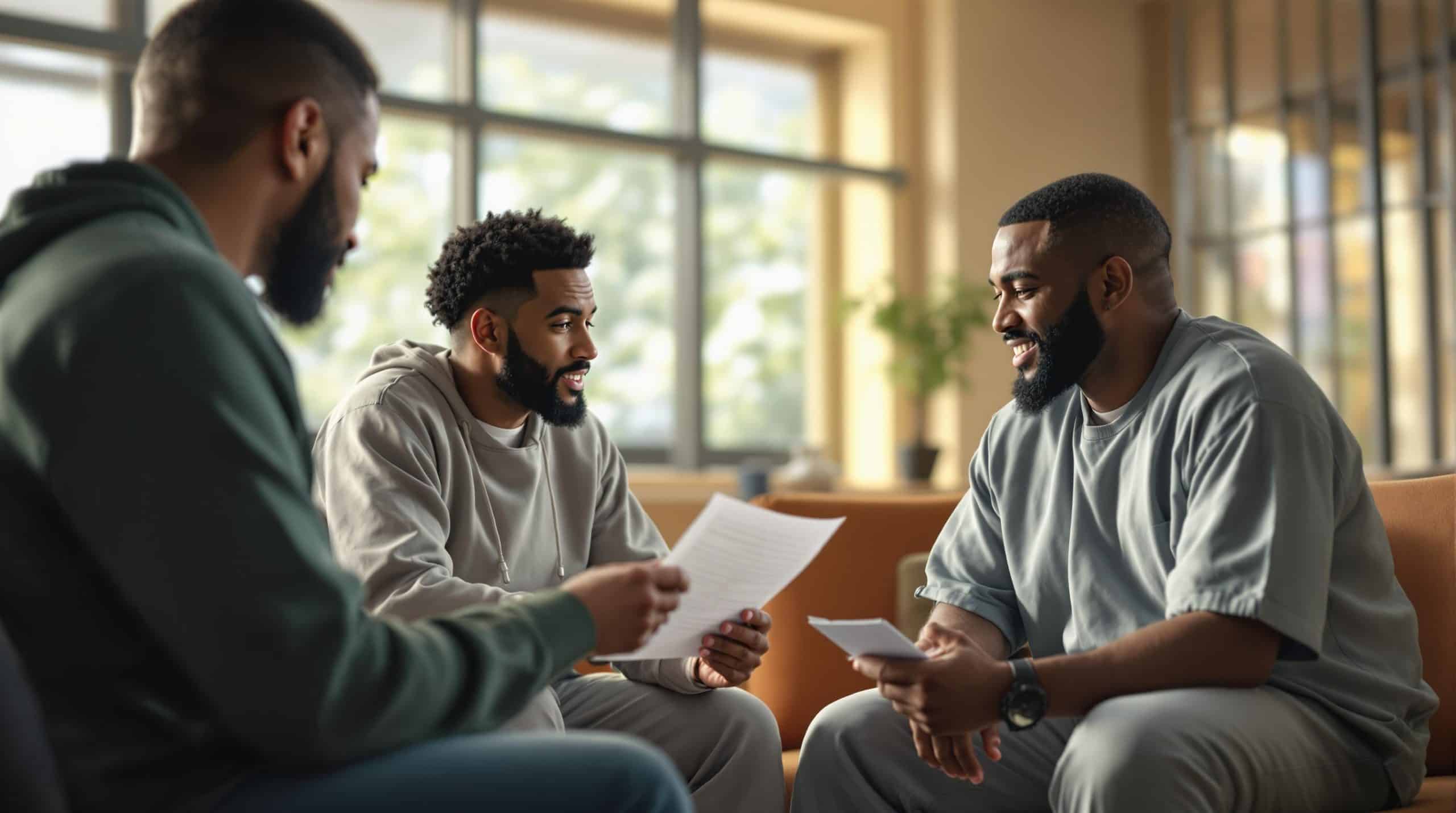The Department of Justice found Georgia’s prisons unconstitutional. That means the state is violating your rights—systematically. Understanding these rights matters: for grievances, for lawsuits, and for survival. Here’s what Georgia won’t tell you about the legal protections you retain behind bars. 1
1. Protection from Cruel and Unusual Punishment
The Eighth Amendment doesn’t disappear at the prison gate. Georgia owes you:
- Freedom from excessive force — Officers cannot use violence as punishment. Hudson v. McMillian (1992) established that even injuries that aren’t severe can constitute violations if force was applied maliciously.
- Adequate medical care — Estelle v. Gamble (1976) held that deliberate indifference to serious medical needs violates the Constitution. The DOJ found Georgia fails this standard repeatedly.
- Safe conditions — Farmer v. Brennan (1994) requires officials to protect you from violence when they know of substantial risk.
GPS has documented 1,682 deaths since 2020. 2 Many involved delayed care, ignored symptoms, and conditions the Constitution prohibits.
2. Healthcare Access
Georgia contracts healthcare to Centurion—a for-profit company paid the same whether you get treatment or not. The legal standard remains:
- Serious medical needs require treatment
- Deliberate indifference—knowing about a condition and ignoring it—is unconstitutional
- Delays that worsen conditions or cause suffering violate your rights
What to do: Document every sick call request, every denial, every delay. Keep copies. Write to family so documentation exists outside prison control. These records become evidence.
3. Due Process in Discipline
Wolff v. McDonnell (1974) established that you have procedural rights before serious disciplinary action:
- Written notice of charges at least 24 hours before hearing
- Opportunity to present evidence and call witnesses (unless doing so threatens security)
- Written statement of evidence relied upon and reasons for the decision
- An impartial decision-maker
Georgia’s disciplinary process often falls short. Document violations—they matter for grievances and potential lawsuits.
4. Protection from Sexual Assault
The Prison Rape Elimination Act (PREA) creates federal protections:
- Reporting channels that bypass prison staff: National PREA Hotline at 1-888-992-7849
- Investigation requirements when reports are made
- Retaliation prohibition against those who report
PREA violations are federal matters. External reporting exists precisely because internal systems fail.
5. Access to Courts
You retain the right to challenge your conviction and conditions of confinement:
- Law library access or legal assistance must be provided
- Legal mail receives heightened protection—opening in your absence may violate your rights
- Denial of postage or supplies for court filings can constitute denial of access
The Prison Litigation Reform Act requires exhausting administrative remedies (grievances) before filing federal lawsuits. File grievances even when you expect denial—the paper trail is required.
6. Equal Protection
The Fourteenth Amendment prohibits discrimination:
- Racial segregation in housing or programming requires compelling justification
- Religious discrimination violates both the Constitution and the Religious Land Use and Institutionalized Persons Act (RLUIPA)
- Disability discrimination violates the Americans with Disabilities Act (ADA)
GPS analysis of 227,000+ GDC records shows stark disparities: 60.16% of Georgia’s prison population is Black, while Black residents comprise about 33% of the state’s population. 3
7. Parole Consideration
If you have a parole-eligible sentence, you have the right to meaningful consideration—not rubber-stamp denial. GPS investigation found 36.5% of parolees were released within 12 months of their maximum release date—parole functioning as paperwork, not early release. 4
Document your programming, good behavior, and support plan. The Board may not review your file meaningfully, but documentation creates a record for potential legal challenges.
Take Action
Use Impact Justice AI to send advocacy emails to Georgia lawmakers and parole board members demanding rights protections. The free tool crafts personalized messages—no experience required.
For immediate assistance:
- Southern Center for Human Rights: schr.org — handles systemic conditions cases
- Georgia Justice Project: gjp.org — legal services and advocacy
- ACLU of Georgia: acluga.org — civil rights litigation
- Georgia Prisoners’ Speak: gps.press — documentation and family resources
Further Reading
- Parole Theater: How Georgia’s Parole Board Rubber-Stamps Inevitable Releases
- Cruel and Unusual Dentistry: Inside Georgia’s Prison Dental Crisis
- Brown v. Plata: A Legal Roadmap for Georgia’s Prison Crisis
- GPS Mortality Database
- GPS Statistics Dashboard
About Georgia Prisoners’ Speak (GPS)
Georgia Prisoners’ Speak (GPS) is a nonprofit investigative newsroom built in partnership with incarcerated reporters, families, advocates, and data analysts. Operating independently from the Georgia Department of Corrections, GPS documents the truth the state refuses to acknowledge: extreme violence, fatal medical neglect, gang-controlled dorms, collapsed staffing, fraudulent reporting practices, and unconstitutional conditions across Georgia’s prisons.
Through confidential reporting channels, secure communication, evidence verification, public-records requests, legislative research, and professional investigative standards, GPS provides the transparency the system lacks. Our mission is to expose abuses, protect incarcerated people, support families, and push Georgia toward meaningful reform based on human rights, evidence, and public accountability.
Every article is part of a larger fight — to end the silence, reveal the truth, and demand justice.

- DOJ Report, https://www.justice.gov/d9/2024-09/findings_report_-_investigation_of_georgia_prisons.pdf[↩]
- GPS Mortality Database, https://gps.press/georgia-prison-deaths/[↩]
- GPS Database Analysis[↩]
- GPS Investigation, https://gps.press/parole-theater-how-georgias-parole-board-rubber-stamps-inevitable-releases/[↩]

I am Kimberly West, D’Kareyan Johnson mother. I have concerns about the way my son is being treated at Hays State Prison. Back on November 17, 2025, I emailed you all about what is going on with my son and it’s still going on after speaking with Security Deputy. My son has filed grievances about four to five dues to the mistreatment. One of the grievances that was filed, my son was threaten if he did not drop it that he was going to be put in a single cell and all his belonging will be taken away and that he will be put back on Tier 1 and Phase 1. Quote: The Unit Manager Bradley went to my son door and threatened him about the grievance he wrote up on Sgt. Stiles for leaving him inside a stripped cell 11 days, naked, sleeping on the concrete, wiping his behind with his bared hands, covered in Bear Spray/Mas, refusing him tissue, soap, a mattress and clothe! Bradley words to my son was ” If he did not drop this O.R., He will put my son on Tier 2 and Phase 1, move him to a single man cell and take all his S**t. My son stated that they retaliating on him for fighting them back the legal way! I had been calling for welfare check due to me not hearing from my son since June 2025. They stated that he was on Restriction due to something taking a place between him and Sgt Stiles. He stated that he was going to write a statement on Bradley and four other officers. After that I did get a call from Illam and spoke with him. However, I have been calling and leaving messages for Illam to call me back and I haven’t gotten a response yet. Illam stated that he has put in a transfer for my son since January. My son fears for his life due to the officers. He stated that Stiles and the rest still trying to provoke them. He stated that Lt. Stewart balled up his food and throwed it on the floor into his room during dinner, and refused to give him tissue and soap and showers during those 11 days, He stated that Warden Jones let it go on and knew it was going on and know that if it’s so called altercation between an inmate and officer that, that officer is not to handle or be around the inmate. Also, he stated that they took all his property and won’t let him go to compound. He said they did a false investigation and denied all his grievances. He wrote 4 and they only responded to one. I got another update from my son, he stated that they will not mail out his letters, which is a federal offense. He wants an immediately transfer because the way he is being treated. The form he was trying to send is a 1983 Lawsuit Form. Look, I am a parent and I love my son and he did wrong and he is in prison for it. He or no other inmate needs to be treated like this. I see on social Media where inmates are saying they are being treated the same way because they filed grievances. I don’t want nothing to happen to my son and he has 7 months left before he comes home. All this isn’t good for his mental health. He isn’t an animal. Animals can’t get treated like this because if they did, it’s a law for the cruelty of animals. My son and other inmates are human that God created.